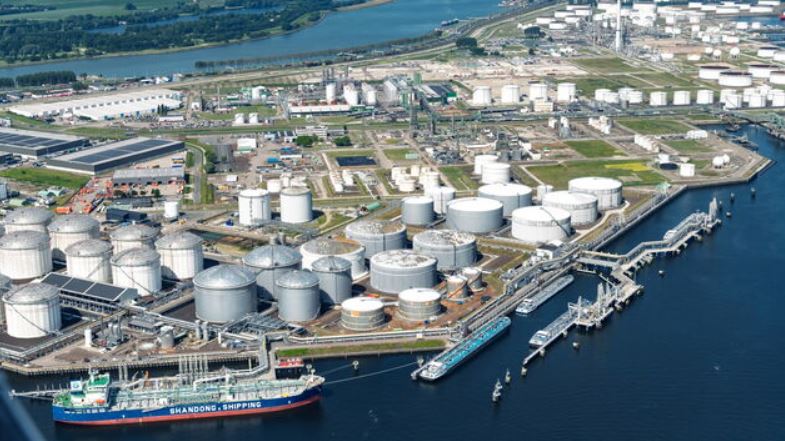 Throughput at the Port of Rotterdam decreased by 4.1ŌĆ»% in the first half of 2025, to 211.0ŌĆ»million tonnes, according to the company's release.
Throughput at the Port of Rotterdam decreased by 4.1ŌĆ»% in the first half of 2025, to 211.0ŌĆ»million tonnes, according to the company's release.
The decline was driven mainly by dry bulk (−8.9ŌĆ»%) and liquid bulk (−5.3ŌĆ»%), while container throughput measured in TEU rose by 2.7ŌĆ»%.
In tonnage terms, containers fell by 1.0ŌĆ»%.
The Port Authority attributes part of this downturn to weak investment in industry. Although the Dutch government has recently taken steps—such as abolishing the plastic levy, reinstating the IKCŌĆæETS subsidy, and introducing a correction factor for renewable hydrogen use—additional measures are needed to improve competitiveness, the statement says. Closures of several chemical companies in H1 resulted in the loss of hundreds of jobs.
Meanwhile, the Port Authority’s operating result remains stable. CEO Boudewijn Siemons said: “In recent months, we as a port have been confronted with economic uncertainties, lagging investments, and disruptions in supply chains... It is also very important that industry in the port remains competitive so as not to weaken Europe’s strategic autonomy.”
A number of sustainability and resilience projects are continuing. This includes the Porthos carbonŌĆæcapture and storage project, expected to begin operations in 2026, and the shoreŌĆæpower installation at Cruise Port Holland Amerikakade, which became operational on 31ŌĆ»March 2025. The Portlantis visitor centre opened on 22ŌĆ»March, drawing 25,000 visitors and educating 8,000 students from Rotterdam South, supported by a €150,000 annual contribution to the Youth Education Fund until 2028.
Security concerns are prompting enhanced defence logistics readiness and cybersecurity measures, including the digital airŌĆæspace management prototype for drones.
Financially, revenues increased by 5.2ŌĆ»% to €462.3ŌĆ»million driven by inflationŌĆæindexed dues and contract renewals. EBITDA rose by 1.1ŌĆ»% to €295.0ŌĆ»million. Net income decreased by €4.7ŌĆ»million to €143.6ŌĆ»million, mainly due to IT capitalisation policy changes and a higher tax burden in 2025. Investment expenditure fell by 17ŌĆ»% to €136.1ŌĆ»million, reflecting project timing and a oneŌĆæoff nitrogenŌĆærights purchase in 2024.
Container traffic rose to 7.0ŌĆ»millionŌĆ»TEU (+2.7ŌĆ»%), with Asia (+8.4ŌĆ»%) and North America (+9.1ŌĆ»%) contributing most; tonnage decreased due to higher percentages of empty containers and fewer full exports (−5ŌĆ»%). Breakbulk rose by 1.3ŌĆ»% to 16.0ŌĆ»million tonnes.
Port congestion affected inland operations and road transport; seaŌĆæside operations remained under control. The Port Authority emphasises that structural changes—such as offŌĆæpeak road scheduling, inland waterway container bundling, and dataŌĆæsharing—are under discussion to address system inefficiencies. It also urges policymakers to sustain industrial investment incentives and sustainable regulation to preserve the Netherlands’ strategic industrial base.
Port of Rotterdam Authority (Rotterdamse Havenbedrijf N.V.) is a Dutch public limited company responsible for the management, development, and operations of the port of Rotterdam. Functions include setting tariffs, managing infrastructure, and ensuring safety, sustainability, and digital resilience.



